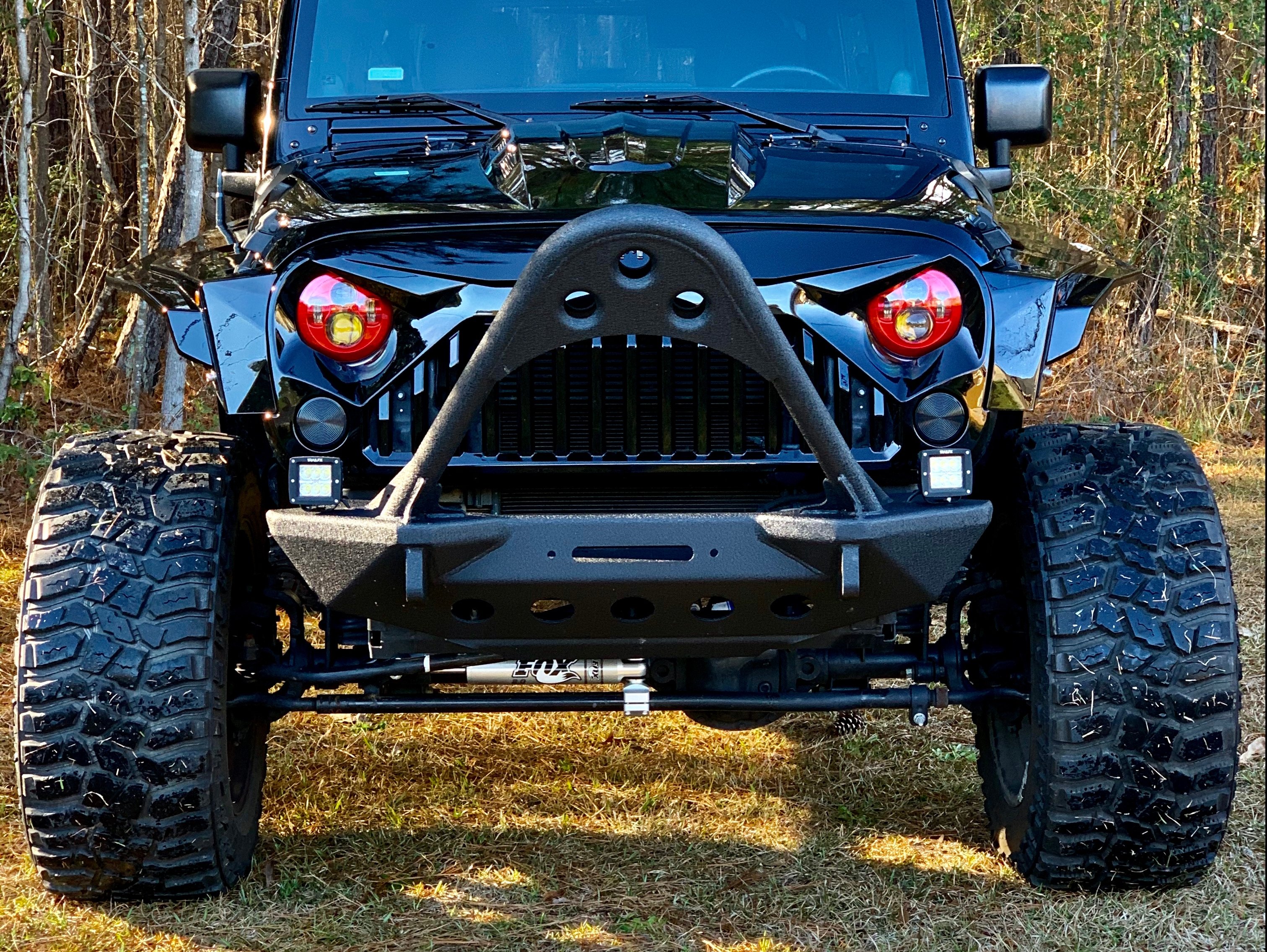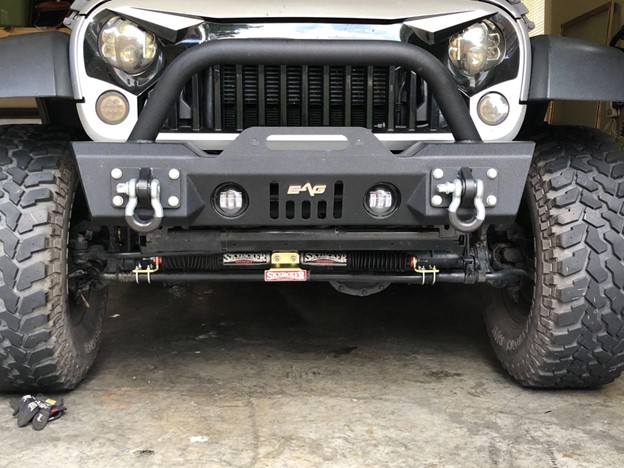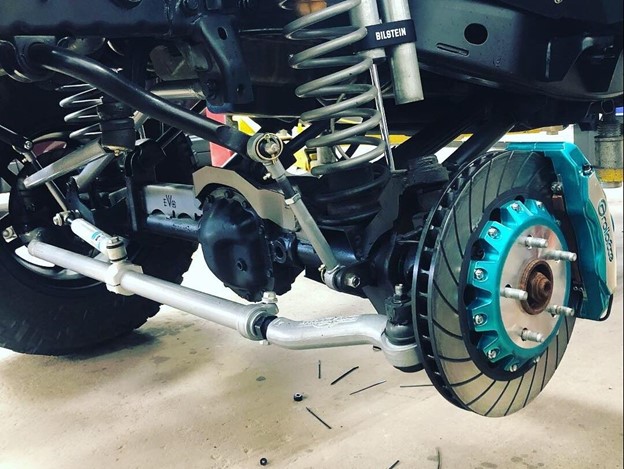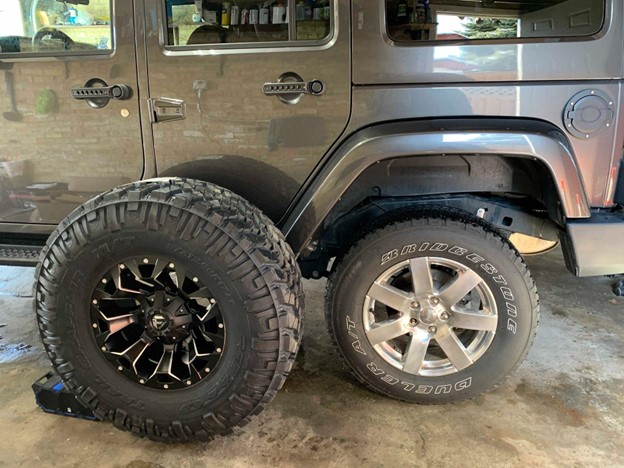

Single vs. Dual Jeep JK Steering Stabilizers: Which Is Right for Your Jeep Based on Lift Type and Tire Size?

Single vs. Dual Jeep JK Steering Stabilizers: Which Is Right for Your Jeep Based on Lift Type and Tire Size?

So, you've lifted your Jeep JK and slapped on some meaty tires. Congratulations, you're now the proud owner of a significantly cooler vehicle. But with great lift comes great responsibility, and specifically, the responsibility to keep your steering from feeling like you're wrestling a highly caffeinated gorilla every time you hit a bump. Enter the steering stabilizer, your Jeep's best friend when it comes to taming death wobble and smoothing out those unpredictable steering kicks. But do you need one stabilizer or two? Let's break down the single vs. dual debate so you can make the right call for your setup.
What Does a Steering Stabilizer Actually Do?

Before we dive into the single-versus-dual showdown, let's get on the same page about what these things actually do. A Jeep Wrangler steering stabilizer is basically a shock absorber for your steering system. It dampens vibrations, minimizes steering wheel kickback, and helps control the sudden jolts you get from rocks, ruts, and road imperfections. It’s important to note that a steering stabilizer is NOT a fix for underlying problems. If your Jeep has worn components, bad alignment, or loose tie rods, slapping on a stabilizer whether single or dual is like putting a band-aid on a broken bone. Fix the real issues first, then upgrade your stabilizer.
Single Steering Stabilizers: The Solid Standard
Single steering stabilizers are the OEM setup on JK Wranglers, and for good reason: they work. A quality single stabilizer can handle most daily driving situations and moderate off-road use without breaking a sweat. They’re best for:
- Stock to 2.5-inch lifts
- Tire sizes up to 35 inches
- Daily drivers and weekend warriors
- Budget-conscious Jeepers
- Mild to moderate trail riding
If you're running a modest Jeep lift kit with 33s or smaller, an upgraded single stabilizer (think Bilstein, Fox, or Rancho) will be a huge improvement over stock and should handle everything you throw at it. You'll notice reduced steering wheel shimmy, better control over rough terrain, and a more confident highway feel. The beauty of a single setup is its simplicity. Installation is straightforward, there's less to maintain, and quality options are available at every price point. Plus, you're not adding unnecessary weight or complexity to your rig.
Dual Steering Stabilizers: Double the Damping
Dual stabilizer setups mount two stabilizers to your steering system, effectively doubling your damping force. This is where things get serious, and where bigger builds start to shine. Use them for:
- Lifts 3 inches and higher
- Tire sizes 35 inches and up
- Heavy front-end builds with winches, steel bumpers, or armor
- Aggressive off-roading and rock crawling
- Correcting persistent steering issues
When you're running 37-inch tires or larger, you're dealing with significantly more rotating mass and a higher center of gravity. Those bigger meats catch every crack, groove, and pebble in the road, sending feedback straight to your steering wheel. Dual stabilizers work together to absorb these forces more effectively than a single unit can. The same goes for lift height. Once you hit that 3-inch-plus range, your steering geometry changes enough that the additional damping of a dual setup becomes genuinely beneficial, not just nice to have.
The Tire Size Breaking Point

Here's where the rubber literally meets the road. Tire size is arguably the biggest factor in deciding between single and dual stabilizers. 33-inch tires and under: A quality single stabilizer should be all you need. Even with a modest lift, the rotating mass is manageable. 35-inch tires: This is the gray area. A beefy single stabilizer can work great, but if you're experiencing steering issues or running heavy front accessories, dual stabilizers will provide noticeably better control. 37-inch tires and up: Go dual. Don't even think about it. Those massive tires are catching wind, rocks, and trail obstacles in ways that a single stabilizer just can't fully manage. Your steering wheel and your forearms will thank you.
Weight Matters
Even if you're not running massive tires, a heavy front end changes the equation. That steel bumper with a winch, skid plates, and auxiliary lights? That's a lot of added weight up front, which increases the forces acting on your steering system. If you've invested in serious front-end armor and accessories, dual stabilizers help manage that extra mass, especially during articulation and when one tire hits an obstacle. Think of it as insurance for your steering components.
What Affects Installation and Cost
Let's talk reality: dual stabilizer setups cost more and take longer to install. You're buying two stabilizers instead of one, plus a mounting bracket or relocation kit. Installation is more involved, though still totally doable in your driveway with basic tools and a weekend afternoon. Single setups are plug-and-play simple. Most bolt right into your factory mounting points with minimal fuss. But here's the thing. If you need dual stabilizers, the extra cost is worth every penny. There's no point in saving $200 if your Jeep steers like a shopping cart with a wonky wheel.
Ready to Smooth Out Your Ride?
Whether you're on team single or team dual, the most important thing is choosing quality parts that match your Jeep's setup. A premium single stabilizer will always outperform a cheap dual setup. Browse our complete selection of Jeep JK steering stabilizers and find the perfect match for your build. From budget-friendly daily driver options to heavy-duty dual setups for serious rock crawlers, we've got the gear to keep your steering solid on any terrain.